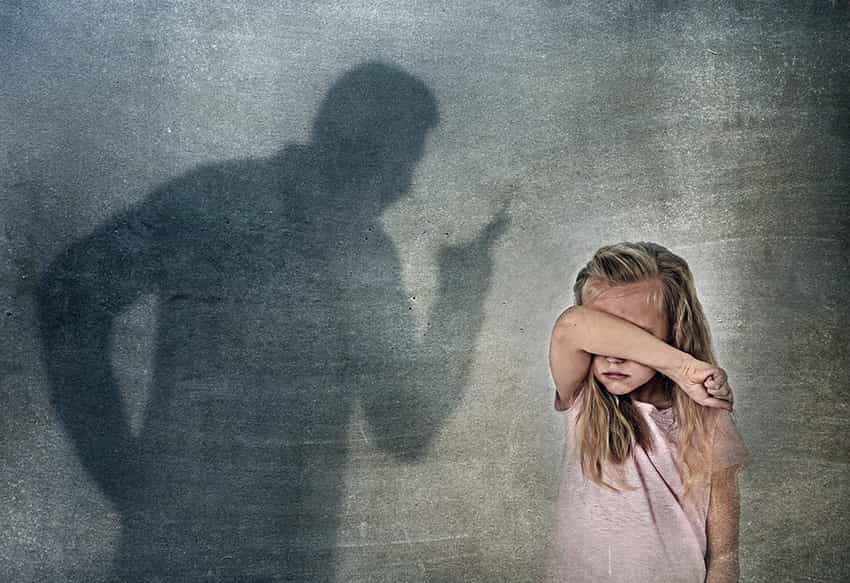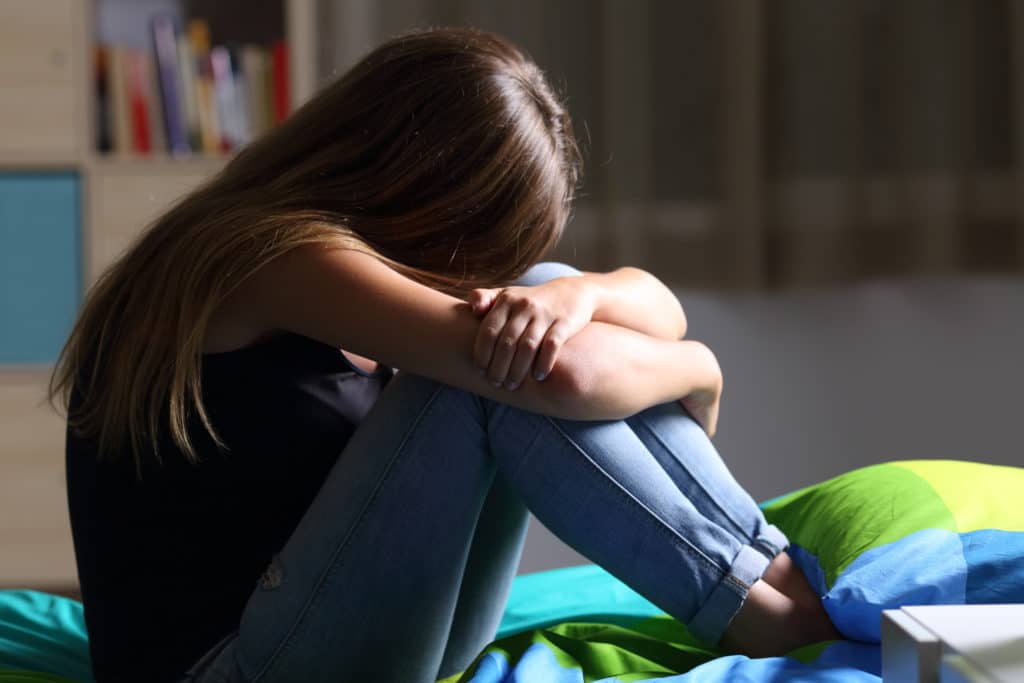Shame: Why It Is The Most Destructive Weapon Of All

I could feel the heat rushing from the depths of my chest up into my neck and then into my face. My Science teacher’s face was contorted with rage. The whole class was silent. Shocked. But all I heard was shouting. No distinct words for a long time. But then she ended with, “…You’re a complete moron”.
I was devastated and angry, but mainly ashamed.
After that day Mrs Giles acted as though nothing had happened. It was never taken any further and I heard nothing more about it. It was disappeared. Her shame and mine. The way it usually is.
What is shame?
Shame is one of our most powerful emotions. In its positive form, it presents as humility. In its mildest incarnations, it’s shyness or embarrassment. But shame. Big, toxic shame is unspoken, secretive and destructive. It wounds us and ultimately it can wound our sense of self. We all have internal stories that we tell ourselves. You’ll recognise yours when you see it:
- I’m not good enough
- I’m a fraud
- I’m not worthy
- I’m not loveable
- I’m broken
- I’m not enough…
They are all born of shame and they can become part of our hardwiring for life. They can underpin the decisions we make and the way we respond to all sorts of situations.
Most of this shame-wounding happens when we are kids and it is most often dealt out by those we love.
Children are largely directed by the part of the brain called the amygdala. It is responsible for our basic impulses like fight or flight. It means a lot of their behaviour is pure impulse. When you shame a behaviour, you are essentially shaming the child, because for them…they are their behaviour.
When does it happen?
Very few adults set out to shame a child. But it happens. I’ve done it. It’s more than likely that you have too. Do you recognise any of these classic hits?
- “How could you?”
- “I’m so disappointed in you”
- “How could you be so stupid?”
- “How many people saw you?”
- “Your behaviour reflects on me”
- “What were you thinking?”
- “Imagine what people think!”
On their own, they sound innocuous. But they are never delivered without strong emotion, no matter how hard we try to sound neutral. And we usually regret saying those things. We feel shame about it ourselves.

Why do we do it?
Shaming usually happens when we are not our calm, rational selves. It happens when:
- We are too busy
- We are rushed
- We have immediate reactions (For example, the shock of seeing your child fighting or stealing or running in front of a car)
- We want compliance immediately.
- We have big emotions ourselves like fear or shock or anger or pain
- We want to punish by causing pain
- It is more likely to happen when nobody is watching and our social guard is down.
- We are much more likely to do it if we are feeling shame ourselves. We feel exposed when our children or our students don’t live up to our expectations and standards.
In saying all this I don’t mean to embarrass anyone. This stuff happens. It’s normal. But…it’s not desirable. And if we can reduce how often we do it, then that’s a good thing.
It is also a good thing if we can repair some of the wounding that we inflict.
How do kids react to shaming?
A well-aimed shaming has profound power. It will unravel even the strongest character. I’m sure you can think of a time, even as an adult, that it has happened to you. How did you react?
Some of the ways kids are likely to react include:
- They will comply and become passive. They will do what you say and probably continue to do so into the future. However, there will be a loss of connection. It may just be a little tear in the relationship, but it will scar.
- The child may try to remove the shame by asking for your forgiveness. They give up all their personal power with pleading statements like:
- I’m so sorry, I don’t want to be that person
- I swear I’ll never do it again
- I’m still the same girl I was before Mum. I promise. (This one breaks my heart because it is a bid for love. It comes from a place of fear that love has been removed.)
- The child can become anxious and fearful
- They may channel their shame into outbursts of anger and scapegoating. Anger is more comfortable than shame.
- Often kids lie in order to avoid shame
- They can become poorly behaved or defiant because they come to believe that they are ‘bad’ or ‘broken’
- Self-destructive behaviours such as alcohol and drug use and self-harm are often associated with long term negative self-belief
Whatever happens, disconnection occurs.
As we are all human, and by nature imperfect, we are going to shame children and our partners or friends or workmates at some stage. Adults will hate it, but they are likely to call us on it. As they should. However, children are different. Children are powerless.
 How should we seek to repair the damage when we shame a child?
How should we seek to repair the damage when we shame a child?
Psychologist, Jane Carmignani gives this advice:
- Acknowledge what has happened. Never sweep it under the carpet.
- Kids learn empathy and the skills of communicating emotions most effectively when we use those skills with them. Plus…it’s the right thing to do.
- Shame is diffused by talking. Often kids won’t want to talk about it, they will want it to just be over, but even a very short conversation can heal.
- Acknowledge that they made a mistake but make it very clear that they are not their mistakes. Shame is the belief that we are our mistakes.
- Discuss what happened and why it happened. Often, we don’t know where kids are coming from. We need to ask.
- Talk about what the wiser choice would have been.
- Strengthen your relationship by doing the little things. Even when you’re busy, look up, look them in the eyes and smile at them. Take the 15 seconds to make contact.
- Always remember, it is normal for kids to push boundaries. It doesn’t reflect on you or your parenting or teaching. Try to separate yourself and your child from the behaviour.
Jane says, “Parenting, is difficult and you are not the only person who struggles. We often feel that we are being judged. With that judgement, perceived or real, comes shame. When we feel shame we often pass it onto our kids. Your fellow parents are going through this too. Talk about it. Meet your friends in vulnerability. You’ll connect there.”
Everyone responds to kids inappropriately sometimes. We all go through these struggles. We just don’t own our problems because…well, we feel shame. But if we talked about shame, we could rob it of its power.
And Mrs Giles, from Year 9 Science. I don’t doubt I was being silly and impulsive, and probably very frustrating. I know you didn’t mean to shame me. And I still think you were great.

Santa Maria Teams Shine in Term 1 Sports
Santa Maria had a huge number of girls in the IGSSA AFL and Volleyball competition with strong results for a number of teams.

Lee-Elle’s Insights from the ‘Make it 16’ Forum
Lee-Elle Cooper is a passionate Year 12 student who advocates for youth engagement and political participation. She has recently returned from the Make It 16 Forum in Canberra.

With Laurissa Knowles From Valley Depths to Mountain Peaks (1993)
Laurissa Knowles (1993) has had an incredible career journey so far, from Santa Maria College Teacher to Celebrant and Councillor.
- discipline, shame
Author: Santa Maria College
Santa Maria College is a vibrant girls school with a growing local presence and reputation. Our Mission is to educate young Mercy women who act with courage and compassion to enrich our world. Santa Maria College is located in Attadale in Western Australia, 16 km from the Perth CBD. We offer a Catholic education for girls in Years 5 – 12 and have 1300 students, including 152 boarders.







